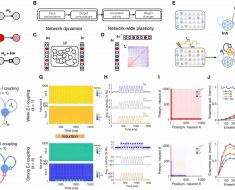If your hospital or health system hasn't yet started thinking about how to handle the fundamental changes soon to arrive thanks to precision medicine, now is the time.
Before long, care and treatment based on genetic sequencing and other omic factors will become the standard of care, says one informaticist, and providers will need to be ready to compete.
"My prediction is that genomic medicine will move from a specialty that did not even require an MD degree, to become an integral part of practice that's required of everyone with an MD degree," Nephi Walton, MD, assistant professor of genomic medicine at Geisinger, said at the HIMSS Precision Medicine Summit in Washington, D.C. this month.
Yes, it's true: Once upon a time, back when it first emerged back in the mid-1940s, medical genetics did not even require a medical degree to practice: Many of its proponents were PhDs. In the years since – especially turbocharged over the past 15 years or so, since the completion of the Human Genome Project – the science has evolved immensely.
There are many, many challenges ahead, even as genomics is increasingly prevalent. As the knowledge gained so far moves more and more into everyday care decisions, precision medicine techniques, as they currently exist, are largely inefficient and unscalable, said Walton. So big changes need to be made to capitalize on it.
Still, health systems need to be ready for this brave new world.
Geisinger is something of a unique case, of course. It's been a longtime leader in genetic-based care delivery. Not just the science itself, but its "population-approach to genomics," as Geisinger CEO David Feinberg, MD, told Healthcare IT News, screening not just sick patients but healthy ones too – something he calls "anticipatory medicine."
The success it has had so far with its MyCode initiative, with participation approaching 200,000 patients, has led the Danville, Pennsylvania-based health system to greatly expand the program. It will now start sequencing patients as routine preventative care.
But for all Geisinger's progress on this front, the larger picture of genomic medicine is one of an "overloaded system" right now said Walton: huge demand for genetic testing with a market of thousands of consumer-facing products of varying reliability; patients who misunderstand the basic premise of many of those tests; a shortage of genetic counselors, a limited supply of clinical geneticists with more referrals than specialists.
Add to this a poor reimbursement landscape, and the problems of physician scarcity and lack of clarity – "a lot of uncertainty with classification in variants and diagnoses" – are only exacerbated.
"Why would people want to go through another two years of training to make less money, unless you're crazy like me and just love this stuff?" he said.
Right now in many places, the wait time to see geneticists can be a year or more.
"We need to spread the load to other medical professions," said Walton. "But the vast majority of physicians are not prepared to understand, deliver or manage genetic test results."
Data, data everywhere
"What we really need is to build systems that allow physicians access to quick and accurate knowledge about genetic conditions," he said. "But even that won't solve it. Because there's just no way that we can acquire and maintain the knowledge to diagnose and manage more than 10,000 diseases."
Right now, the troves of data showing genetic variants that may or may not be clinically useful are just too large and complex. And easy access to that data is lacking. ClinVar, NIH's free archive, which compiles reports on medically important variants is "a good repository," said Walton, but the fact that anyone can contribute to it means some data may be very useful but other submissions may of dubious utility.
Another more basic challenges is that the more we learn about genomic, the more complicated it all seems to get. There is a much wider phenotypic spectrum to most diseases than we thought based on the wide variety of mutations that can occur, he said. And many individuals who have unusual conditions simply have two or more overlapping variants.
Even some of the most well-studied genes, such as BRCA1 and BRCA2 don't necessarily offer a reliable path to know how treatment might be tailored. Walton showed how 22 percent of their variants might affect medical management, but 44 percent shouldn't.
Tests can be misread, and radical treatment based on a misinterpretation could pose big liability questions for hospitals, said Walton, noting that there are other more nuanced questions too
"What is the liability if you have this information (about a variant) and you don't act on it?" he said. "Or if you act on it in the wrong way? We have results that would have been classified differently, depending which lab they went to."
And what about patients' access to their own data? "Do they have the right to that, just like they do to their medical record? It's hugely valuable, but what do you do with it?"
A more immediate question is what providers do with it, said Walton. "If you go get exome sequencing done it looks at all of the expressed human genes – that generates six to eight gigabytes of crucial data."
Where does it all go? "A physician gets a PDF that might identify one variant, maybe up to three variants, that might contribute to whatever you sent the test for," he said.
"All that other data is not even used. You have tons of data that tells you how they're going to react to medications, what things they're going to have to look out for in the future, and it just doesn't go anywhere right now."
So one of the major current projects at Geisinger – especially as it embarks to make DNA sequencing its standard of care – is to work toward better integration of genomic data into the EHR for patient management and clinical decision support.
"That is going to be crucial moving forward because that is going to be the only way we're going to be able to handle this massive amount of data that's coming in," said Walton.
"I've always been critical of vendors' inability to do this, but Epic has finally put a way to store genomic data into an EHR and we're going to be going live with that in November," he added. "That is a huge accomplishment that will allow us to do decision support."
Cerner is also reportedly developing technology, in partnership with staff at Intermountain, to bring "discrete, useful, interactive precision medicine data to front-line care givers," according to a tweet from one of that health system's clinical leaders.
"People are starting to catch on," said Walton. "Now we have to figure out the decision support, the standards, how we deliver information. It doesn't matter that it's there if the provider doesn't know how to use it."
There are big questions still to be answered, he said. "As this becomes mainstream and we start pushing systems out so everyone can use it, what will they do with it? A lot of those things have to be worked out."
And it is indeed a necessity, he said. For everyone – not just clinicians, not just IT staffs, not just hospital C-suites. Stakeholders as diverse as medical schools, law firms, policymakers and patients will all need to start familiarizing themselves with these advancements.
Healthcare needs to do better safely enabling such rapid change, said Walton.
"We must embrace the genomic evolution that is taking place and find ways to enable it rather than resist the inevitable," he said.
The next HIMSS Precision Medicine Summit will take place at HIMSS19 in Orlando on Feb. 11, 2019.
Twitter: @MikeMiliardHITN
Email the writer: [email protected]
Source: Read Full Article





